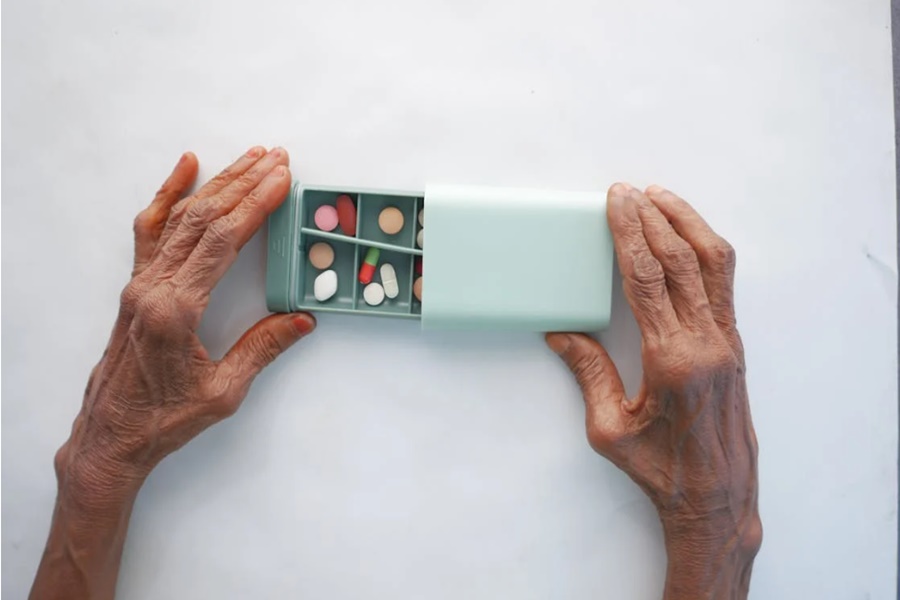
In this article we are going to talking about drug therapy in the elderly and indications for administering drugs in elderly patients.
As we all know, drug is any substance that can bring about changes in the biological function of the body through chemical actions. WHO also defines drug as any substance or product that is used or is intended to be used to modify or explore physical systems or pathological states for the benefit of the recipients.
When these drugs are taken they lead to series of physio-chemical activities in the body. For an elderly the activities are amplified by the failing organs of the body to the detriment of the elderly.
Physiological Changes In The Elderly That Affect Drug Use
Physiological changes in the elderly and pharmacokinetics of a particular drug determines the particular dosage of the drug to be used by the elderly.
Age related changes that alters the therapeutic and toxic effects of drugs are as followed;
- Changes in body mass: the proportion of fat, lean tissues and water in the body change with age. Total body mass and lean body mass tend to decrease while the proportion of body fat tends to increase. This changes in the body composition affects the relationship between a drug’s concentration and distribution in the body.
- Gastrointestinal function: there is decrease in gastric acid secretion and gastrointestinal motility in the elderly. All these reduce the emptying of stomach contents and movement through the entire intestinal tract. Elderly persons have been shown to have more difficulty in absorbing drugs than young people. This is a significant problem with drugs that have narrow therapeutic range in which small changes in dosage can be crucial.
- Hepatic function: the liver’s ability to metabolize certain drugs decreases with age. The decrease is caused by diminish blood flow to the liver which results from an age related decrease in cardiac output, and from the lessened activities of certain liver enzymes.
- Renal function: the ability to eliminate some drugs may be reduced by more than 50% in the elderly and most of the drugs used by the elderly are excreted primarily through the kidney. If the kidney’s ability to excrete drugs is decreased it will lead to high blood level of the drug.
- Disease condition: the physiologic decline in organ function in the elderly is usually worsened by disease conditions. This leads to adverse drug reaction to drug as well as noncompliance.
Read Also: Understanding The Nutritional Assessment of The Elderly
Special Consideration in Drug Administration in Elderly
- Drug doses are modified to compensate for age related decrease in renal function. BUN and creation level serves as a guide for adjusting drug dosages so that patient receives therapeutic doses without the risk of toxicity.
- Compared with younger people, elderly patients experience twice as many adverse drug reaction mostly due to greater drug use, poor compliance and physiological changes. These adverse reaction are often mistakenly attributed to salinity and in some cases the elderly may continue to receive the drug. For this reason, any adverse reaction in the elderly must be investigated.
- Because the total body water content decreases with age, a normal dose of potassium-wasting diuretics may result to severe dehydration and can lead to raised blood uric acid and glucose level thereby complicating gout and diabetes mellitus.
- Many elderly people experience light headaches when taking anti-hypertensive drugs partly due to atherosclerosis and decreased elasticity of the blood vessels. Anti-hypertensive drugs can lower blood flow to the brain which causes dizziness and fainting. In elderly, aggressive treatment of high blood pressure may be harmful.
- Noncompliance: in elderly patient the factors that are linked with noncompliance to drug regimen includes; diminished visual activity, hearing loss, forgetfulness, the need for multiple drug use, socio-cultural factors.
Age Related Changes That Affect Drug Therapy In The Elderly
- Decreased body water
- Decreased lean mass in the body.
- Increased body fat
- Decreased serum albumin level
- Altered homeostatic mechanism
- Altered receptor sensitivity.
Risk Factors That Contribute to Medication Problem In The Elderly
- Disease process
- Functional impairment due to multiple organ dysfunction.
- Inappropriate prescribing practice
- Poly-pharmacy due to multiple pathology
- Inadequate monitoring of the drugs in elderly
- Financial factors
- Insufficient recognition of adverse drug effects, which maybe masked.
We hope this information was helpful. Feel free to ask your questions in the comment section below.